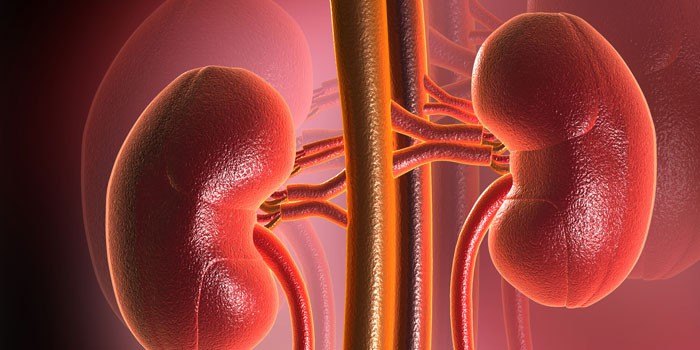Content
- What is hemodialysis?
- Artificial kidney
- Indications for hemodialysis
- Kidney Dialysis Diet
- Hemodialysis at home
- Hemodialysis Complications
- How many live on hemodialysis
- Hemodialysis – contraindications
- The price of hemodialysis
For certain pathologies and conditions of the body, a blood purification procedure may be required. This is where the patient finds out what dialysis is, which is performed using the “Artificial Kidney”. This procedure is performed in case of renal and hepatic insufficiency, provides a stable therapeutic effect, affordable.
What is hemodialysis?
The artificial kidney machine is installed in a hospital, its main task is to extend the patient’s life by 15-20 years. With the help of such a medical device, round-the-clock cleaning of the systemic bloodstream and prevention of acute intoxication of the body are carried out. Kidney dialysis is more often performed in adulthood, requires prior medical advice.
Artificial kidney
If blood purification is recommended according to indications, hemodialysis is recommended to the patient. So, in his daily life, the “Artificial kidney” apparatus appears, which supports the systemic blood flow and vital functions of the body. The unit itself consists of three components, each of which has its own functions, a targeted action in an organic resource:
- Blood supply device. Collects portions of body fluid for further filtration..
- Device for the implementation of dialysis solution. In this segment, the composition is prepared, sent for further interaction with the systemic circulation for the purpose of future purification of biological fluid.
- Dialyzer A central part with a permeable membrane that filters water and all toxins in the blood.
- Doctors use a catheter, fistula, and transplant to receive and move blood. In modern medicine, these elements simplify the session..
Dialyzers for hemodialysis
When carrying out this procedure, it is obvious that the blood first undergoes a high-quality purification, and then returns to the patient’s body intravenously. The session is not pleasant, but it is able to maintain the viability of the body in case of acute intoxication or renal dysfunction. When their own kidneys and liver can not cope with the load, their direct functions are performed by a special medical device.
Choosing dialyzers for hemodialysis, it is important not to forget that the semipermeable membrane is considered the main design feature. Better if it is made from cellulose-based natural substances..
Synthetic foundations are also found, but have more contraindications. It is necessary to control such a filter, because when interacting with toxins and toxic substances, it also has the property of clogging.
Indications for hemodialysis
When the chemical composition of the blood changes pathologically, there is a need for an urgent response to the problem. Otherwise, the body may die from severe intoxication. Indications for hemodialysis should be clarified by the attending physician, and the risk of contraindications and complications during the rehabilitation period should also be excluded. If you still have questions about hemodialysis – what is it, the expert will tell. He also points to such indications for the upcoming procedure:
- acute or chronic hepatic and renal failure;
- severe drug intoxication;
- violations of the electrolytic composition of the blood;
- dialysate poisoning.
Kidney Dialysis Diet
If the patient is prescribed hemodialysis of the kidneys, it is necessary to adjust the daily menu, remove heavy food from it. If this is not done, the procedure is somewhat complicated. Diet during hemodialysis excludes potassium salts, phosphates, lipids, simple carbohydrates. In addition, moderate portions of fluid are shown to avoid increased swelling of the dermis. Protein products and natural vitamins become the basis of medical nutrition. Only in this case the diet rules are observed.

Hemodialysis at home
It is better to contact a specialized medical center with a characteristic problem, but some patients choose non-free treatment at home. Hemodialysis can be implemented at home, but for this the patient will have to rent an artificial kidney. This is not medical equipment that you can buy in an online store or order it yourself in a catalog. It’s better not to experiment, but to entrust your health to professionals.
If you have to realize hemodialysis at home, this method needs to be controlled, the unit must be cleaned properly, indicators measured, the balance of the chemical composition of the blood maintained, the duration of wear and the general recommendations of the doctor observed. How much such treatment will be needed, no one knows. It all depends on the specific clinical picture, the patient’s age category.
Hemodialysis Complications
No one is safe from side effects during intensive care. The patient should know that there are complications of hemodialysis, and their appearance in the body during the procedure and after its termination is not excluded. More often they are temporary, after the disappearance of alarming symptoms, the patient feels a steady therapeutic effect. Possible anomalies may be as follows:
- the occurrence of infectious diseases;
- jumps in blood pressure;
- nausea, less often – vomiting;
- muscle cramps;
- epilepsy attacks;
- catheter obstruction;
- air embolism.
How many live on hemodialysis
Patients have to use an artificial kidney to filter their blood for the rest of their lives. However, everyone is interested in the same question, how many live on kidney dialysis. Arteriovenous hemodialysis helps maintain the viability of the body for 15-20 years. However, this is not an accurate indicator, since extrarenal blood purification depends on many factors and the patient’s general health.
Hemodialysis – contraindications
Before you know the cost of the procedure, it is important to study the features of its implementation. For example, hemodialysis has contraindications, which significantly limit the number of people who want to use an artificial kidney for successful treatment and prolong life. An alternative may be peritoneal dialysis. The medical limitations for hemodialysis are:
- tuberculosis;
- nervous disorders;
- the presence of malignant tumors;
- chronic alcoholism;
- exacerbation of an infectious disease or inflammatory process;
- bleeding tendency.
The price of hemodialysis
Each patient plans to undergo the procedure inexpensively, but this does not always happen. Prices are different, depending on the choice of clinic and diagnosis. You must contact the dialysis department of your city and find out the exact price of hemodialysis. For medical reasons, it is better not to delay with the start of intensive care, no matter what the price.












